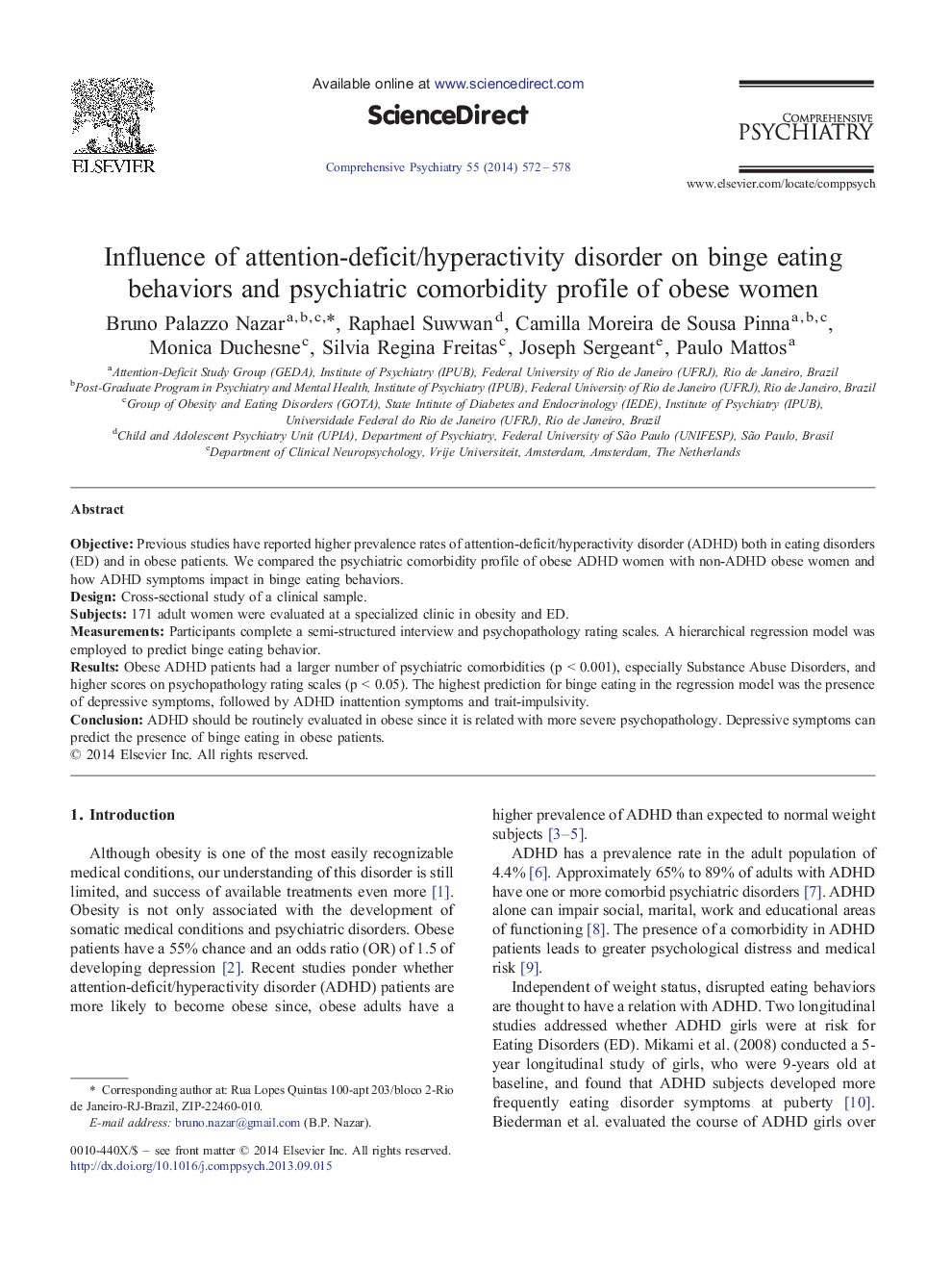| Article ID | Journal | Published Year | Pages | File Type |
|---|---|---|---|---|
| 316403 | Comprehensive Psychiatry | 2014 | 7 Pages |
ObjectivePrevious studies have reported higher prevalence rates of attention-deficit/hyperactivity disorder (ADHD) both in eating disorders (ED) and in obese patients. We compared the psychiatric comorbidity profile of obese ADHD women with non-ADHD obese women and how ADHD symptoms impact in binge eating behaviors.DesignCross-sectional study of a clinical sample.Subjects171 adult women were evaluated at a specialized clinic in obesity and ED.MeasurementsParticipants complete a semi-structured interview and psychopathology rating scales. A hierarchical regression model was employed to predict binge eating behavior.ResultsObese ADHD patients had a larger number of psychiatric comorbidities (p < 0.001), especially Substance Abuse Disorders, and higher scores on psychopathology rating scales (p < 0.05). The highest prediction for binge eating in the regression model was the presence of depressive symptoms, followed by ADHD inattention symptoms and trait-impulsivity.ConclusionADHD should be routinely evaluated in obese since it is related with more severe psychopathology. Depressive symptoms can predict the presence of binge eating in obese patients.
